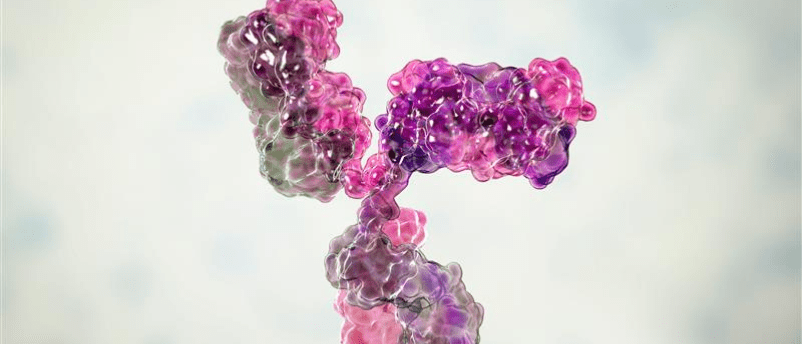Panel discussion: ADC bioanalytics

Over the course of this Spotlight, we’ve examined the key trends relating to ADCs, including the techniques currently in use, the PK/ADA assays most commonly used, and the bioanalytical challenges associated with ADCs. Our audience communicated strategies they believe will address some of the most significant challenges and predicted how ADC bioanalysis might evolve in the next 5 years. In this Spotlight Panel discussion, our team of experts will dissect the data we’ve collected on ADC bioanalytics and answer live questions submitted by our audience.
What will you learn?
- The techniques currently being used to assess total antibody vs conjugated ADCs
- The PK and ADA assays being requested by sponsors and their benefits
- The challenges associated with ADC bioanalysis and methods for overcoming them
- How ADC bioanalysis is predicted to evolve in the next 5 years
Who may this interest?
- Bioanalytical scientists involved in developing and validating ADC assays
- Individuals working in Pharma/Biotech on ADC projects
- Oncology researchers interested in ADC-based cancer treatments
Speakers

Ashley Brant
Vice President, Bioanalytical Services
ICON
Ashley Brant is a seasoned leader in the bioanalytical industry with over 25 years of experience in driving process improvements that enhance productivity and ensure regulatory compliance across both large and small molecule bioanalytical streams.
Ashley’s career began after earning her biochemistry degree from Eastern Michigan University, performing EGFR receptor research with Elizabeth Butch. She then joined Parke-Davis/Warner-Lambert. There, she assessed molecular biological interactions to evaluate the mechanisms of action and safety risks for early drug candidates. This role led her into the biomarker quantitation field and to mastering LC–MS/MS, integrating it with traditional ligand-binding assay (LBA) methods.
At Pfizer (NY, USA), Ashley expanded her expertise in regulated bioanalysis, developing methods specializing in ligand binding, antibody capture, endogenous molecules, and hybrid platforms, all while adapting to the evolving fast throughput demands of drug development.
She later pursued graduate education at the University of Michigan (MI, USA) in the Hakansson lab and transitioned to consulting, honing her skills further in bioanalysis. Over the past 15 years, Ashley has led bioanalytical teams within contract research organizations, overseeing diverse areas such as mass spectrometry, LBAs, cell-based assays, flow cytometry, immunogenicity and more.

Rachel Foreman,
Senior Scientist, Drug Discovery Bioanalysis Group
AstraZeneca (Cambridge, UK)
Rachel is a Senior Scientist in the Discovery Bioanalysis Group at AstraZeneca, specializing in targeted LC–MS/MS assays for early drug compounds and biomarker measurement. She works in collaboration with numerous teams to support the growing in vitro platform for safety assessments of novel oncology treatments.
Before this role, Rachel completed her PhD in Clinical Biochemistry at the University of Cambridge (UK), where she developed bioanalytical methods to identify and quantitate novel peptide biomarkers for metabolism. It was during this research that Rachel learned the importance of optimizing methods to improve assay detection limits and the potential benefits of using in vitro models for understanding diseases and therapeutic treatment.

Violet Lee
Senior Principal Scientist
Genentech (CA, USA)
Dr M. Violet Lee is a Senior Principal Scientist at Genentech, specializing in bioanlaytical chemistry with expertise in protein/ large molecule, small molecule and post translational modification characterization, quantitation and immunogenicity risk assessment. Violet obtained her M.S in Chemistry from the University of Illinois at Urbana-Champaign (IL, USA) and went on to obtain her PhD in Chemistry from the University of Wisconsin-Madison (WI, USA). In 2013, Violet joined the Bioanalytical Sciences Department in Genentech, supporting projects ranging from late-stage research through clinical development of antibody-drug conjugates (ADCs) and novel large molecule modalities in oncology and ophthalmology. Violet’s group develops and implements immunoaffinity mass spectrometry-based PK assays, characterizes ADC ADME and quantifies associated catabolites, as well as assesses potential immunogenicity of biotherapeutics through MHC-II Peptide Proteomics. Violet has served as a member of the organizing committee and Chair of the discovery bioanalysis session for applied pharmaceutical analysis, was a member of the AAPS (VI, USA) ADC Bioanalysis Committee sub-team, and chaired the ‘Therapeutic Proteins, Antibodies, and ADCs’ session at The American Society for Mass Spectrometry (NM, USA).

Charlie Britten
Senior Director, Bioanalytical Sciences
ADC Therapeutics (ADCT; Lausanne, Switzerland)
Charlie Britten has worked on the bioanalysis of ADCs at ADCT for the past 11 years, including developing the bioanalysis package for Zynlonta. Charlie now leads the Bioanalytical Sciences group at ADCT, covering clinical and non-clinical PK, immunogenicity and biomarkers, as well as product characterization, bioassay development and early phase screening assays.
Charlie spent the last 15 years working on analysis of biologics, spending 4 years at Merck KGaA (NJ, USA) on CMC bioassays and clinical/non-clinical bioanalysis prior to joining ADCT. He has an MSc in Medical Biochemistry from the University of Wales and a BSc in Biomedical Sciences from Cardiff University (both UK).

Benno Ingelse
Senior Director, Bioanalytics & DMPK
Byondis (Nijmegen, Netherlands)
Benno Ingelse is a seasoned bioanalytical scientist with 25 years of experience in both the pharmaceutical industry and contract research organizations. He has led teams of scientists at various companies, driving innovation and ensuring the highest standards of bioanalytical research. Over the past 6 years at Byondis, Benno has focused extensively on all bioanalytical aspects of ADCs, including LC–MS/MS, LBAs and immunogenicity. In his role, Benno is responsible for the bioanalytical support of ADC projects in all different phases of drug development, from early discovery up to clinical trials.
This Panel discussion was recorded on the 16th of April.
In association with:
